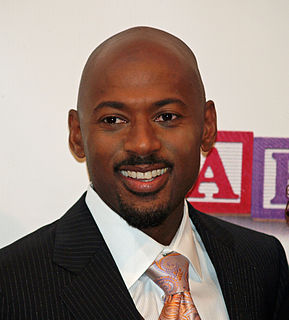A Quote by Chris Gethard
The thing that I like about public-access is that I am often in the middle of chaos.
Related Quotes
Coming from a background as unique as mine, the first challenge is being able to identify chaos as chaos. For the first half of my life, I interpreted chaos as normal. Today, I am aware that I have triggers: a default way of thinking that is often not relative to the immediate moment. Therefore, in the midst of chaos, I have learned to relinquish all my premature cognitive commitments and become present.
We are always centered in the middle of chaos. It never goes away. It's important to find your inner peace. For me, it's literally looking at the bigger picture. When I think about the size of the universe, I feel like any problems I'm surrounded by are so small. I just do my best to react to chaos with love, and hopefully, other people will catch on and do things out of love too.
There's something I really like about network TV. You have this humongous audience, tens of millions of people, and you really can be in a little hut in Thailand; you really can be in the middle of an apartment in Dubai. There's something about public entertainment that I always liked. I like smaller movies, and I like public entertainment.
One thing you learn about doing nonfiction is that you've got to get it right, fact-check, do your research. You've got to not only get the facts right but represent the subject to the world in a way that insiders feel like it's an access port and outsiders can access it. If you're too insider, you block access to anyone else.
In the Internet world, both ends essentially pay for access to the Internet system, and so the providers of access get compensated by the users at each end. My big concern is that suddenly access providers want to step in the middle and create a toll road to limit customers' ability to get access to services of their choice even though they have paid for access to the network in the first place.




































